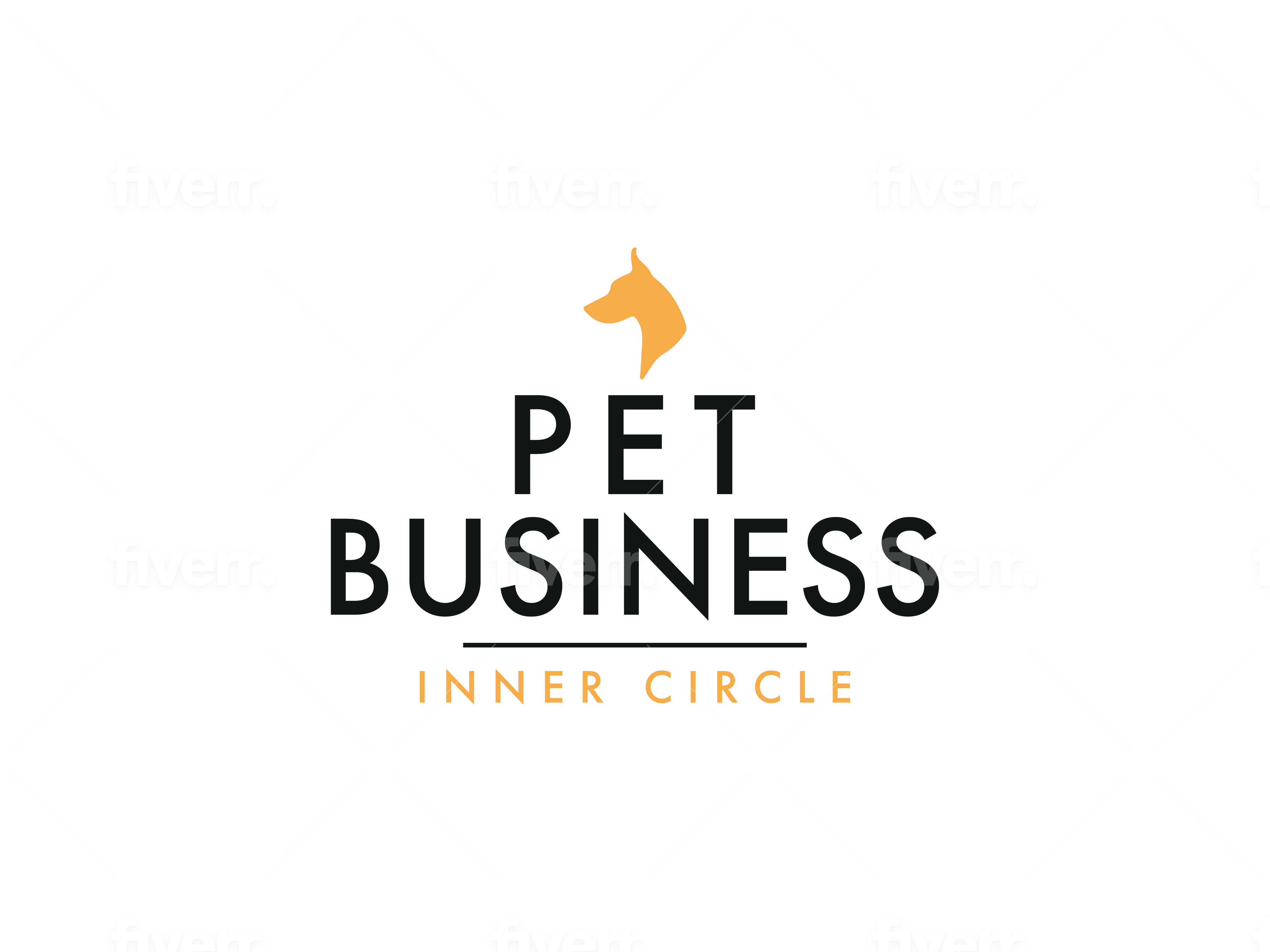
How to Successfully Take Your Dog Training Business Online and Create a Recurring Income Stream.
Discover how Spaniel Specialist Hannah Antrobus has 'Niched' her dog training business and created a new income stream with an online membership program.
Listen and learn from Hannah's inspirational story by clicking on the image below...
Full Transcript Below
Dom: I'm joined by spaniel specialist, Hannah Antrobus. Hannah is one of my Platinum Private Coaching clients. She's been through Gold and Diamond. She's now in Platinum. Hannah, before we dive into the business journey and all the amazing things you've been doing over the last year, 18 months, tell everybody who you are, where you're based, and what you do.
Hannah: Hi, everyone. I'm Hannah. So I'm based in Yorkshire, but I work kind of nationally and internationally now via Zoom. So we specialise in one to one training behaviour, but I work more and more in a spaniel niche with spaniels and spaniel crosses. And my niche is basically in supporting spaniel and spaniel cross owners to just have a really lovely pet dog and helping calm them down, which is always a little bit tricky with those breeds, because they're not the most chilled. So yeah, that has taken me nationally and internationally with clients. Just recently I finished training a little spaniel in Switzerland, which has been really good.
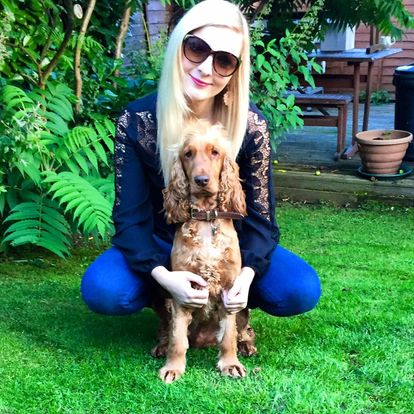
Dom: So when you came into my world, you had already gone online, hadn't you? And when the pandemic happened you were one of the very few dog trainers whose business continued uninterupted, and progressed despite the pandemic, because you had already made that switch. You had a lot of long term clients. We struggled to serve everybody who was on your waiting list, didn't we?
We had a problem of how do we help more people? And like you said, you're a spaniel lover. You were already kind of leaning into this spaniel niche. But we hadn't dived in with both feet. Tell us about like the services that you were offering?
Hannah: So I think just the one to one stuff, really. I was doing programmes at a reasonable price, but they probably weren't what you would call premium. I was offering one to one coaching, but I was inundated all the time and not really knowing how to help all the people who were contacting me. And I'll always refer to the professionals but it was getting more and more busy, and they specifically wanted me, which is lovely, but it's also a tricky situation to be in when there's only one of you.
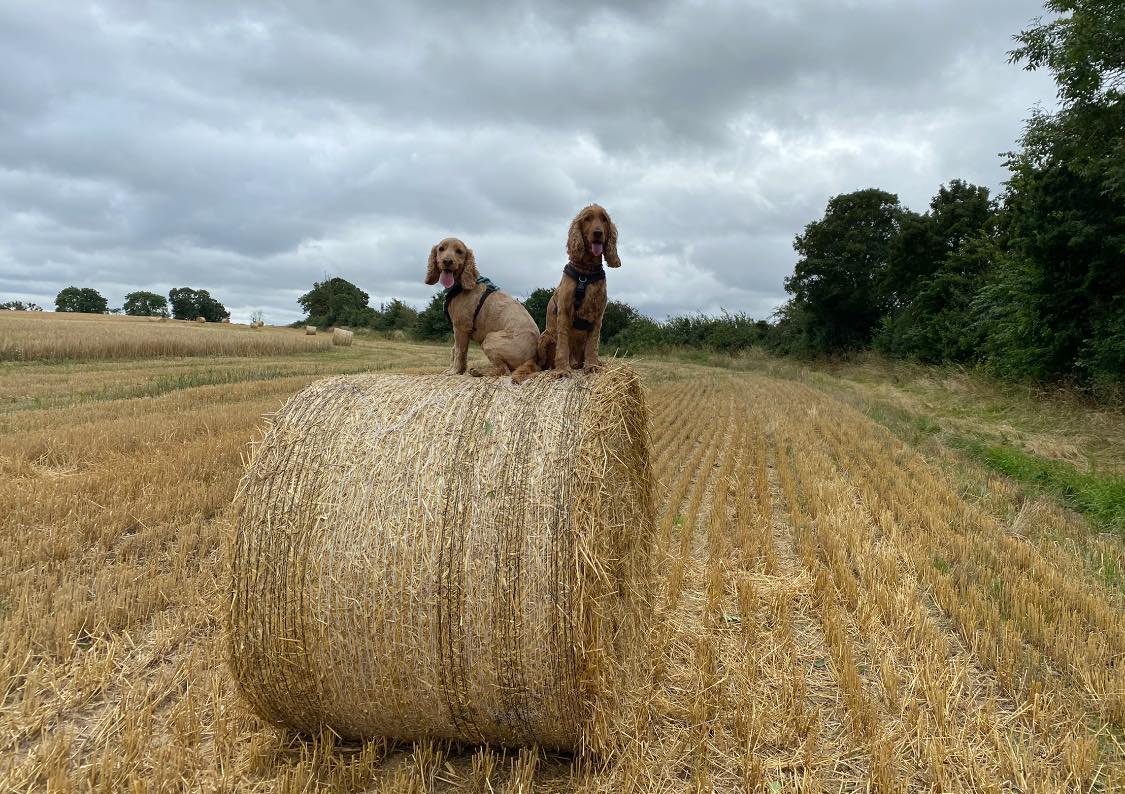
I think a lot of the time, I was trying to do stuff, but really without much structure or idea of what I was doing. And I would say I was very reactive in business and more and more now I've definitely become a lot more proactive, because I'm a little bit of a last minute person anyway, but I've started really realising I have to plan ahead and that's definitely helped me. And it's been something quite tricky to learn as well, working towards specific business goals.
I find that quite tricky, but really, really useful and useful in making me be proactive and help me to plan, as opposed to just reacting late to the situation.
Dom: Yeah. And because you had a full client base and you had a lot of pent up demand, it's very easy to just remain reactive, isn't it, and try and squeeze people in. You can increase your income that way, but you can't dramatically increase your income that way, because you're just tweaking around the edges with squeezing people in here and there.
We did some serious price increases, didn't we, and introducing the packages and continue to raise prices as well. What difference has that made to... You don't have to tell us exact numbers if you want to, but from what you were charging at the start to what we charge in the packages now?
Hannah: I think for anyone when they do price increases, they always have that feeling of... self doubt. And still when I have to do a price increase, I'm like, "Oh God," which I'm sure lots of people can relate to, but it does make a huge difference because you don't need the same amount of clients. It's more about giving that quality support, which does come in a bit more of a premium price because I want to do certain CPD so that I've got the the best knowledge to give them.
I don't want to get into the point where I had so many clients, I was forgetting to do notes, I was forgetting to do that stuff. I want to have that high level of support, which realistically, I can't do for hundreds of them.
So it has made a huge difference and it's made a huge difference in income as well. I think it allows me to then put more into the business because I can afford more. So yeah, a huge difference.
I have generally found I've had better, more reliable, more committed clients when they're paying a little bit more as well, because it's an investment for them and they appreciate it, that it's not a quick fix, usually, it's not an overnight thing. It's going to take their commitment to get the results and things that they want.
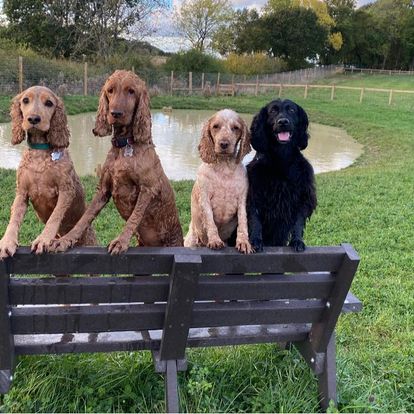
Dom: A hundred percent. We fear price increases. Everybody does. But almost always, inevitably, we get better clients, they're more committed. Like you say, they stay longer, they refer more freely. You're basically able to do more with less. You're able to give them a better service as well, just like you said.
So that was what we did at the start of your coaching journey. I remember having conversations about your training packages and we putting different packages together and you just keep pushing the price, pushing the price, and we do another call and I'd say, "The waiting list is still too big. So, let's push the price again," And you did it.
I always like dog trainers to lean into some kind of niche, either behaviour, a breed, or relationship with a dog, something like that. And with you, it was evident, it was spaniels. You were already kind of building up a spaniel client base, weren't you? People were coming to you, specifically spaniel owners. So to me it made perfect sense to like jump with both feet into this niche.
How did you feel about that at the time? And what kind of difference has it made since we've done that?
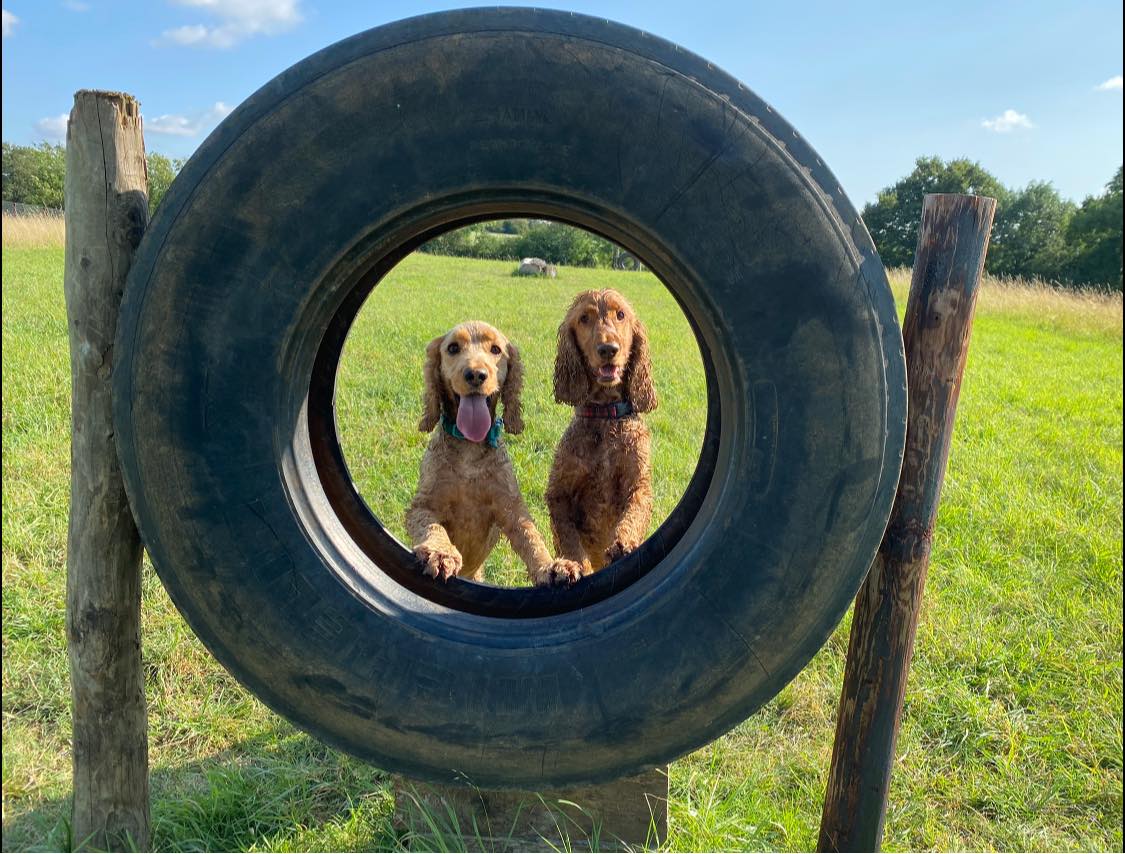
Hannah: I think it was always something that was heading in that direction. But I remember when I had my website redone. And you said just go hard on spaniel, basically just put spaniel all over your website. And I was like, "Oh no, but it will scare everyone off." And I was like, "Okay, I'll trust him, see what happens."
Then pretty much since then a lot of the enquiries obviously fit the spaniels and spaniels crosses breed, so I'll get people complete the enquiry from. They'll be like, "He's a Labrador, but he acts like a spaniel," or, "He's a bully, but really I think he's got spaniel." And it's quite funny because they're almost trying to persuade me it's a spaniel, even though I still work with other breeds and things.
But I think the niche helps me attract more spaniels. I feel comfortable with them and being a spaniel owner myself, I can usually emphasise with a lot of the common issues and understand the pain points people have.
On social media, I'm very honest, kind of about the boys. I share the good and the bad. I share the stories and things of when they're like complete idiots, to be honest. And I think that helps people again, emphasise and not feel judged. I think sometimes again with dog professionals, it's this pressure to have perfect dogs. In reality, a lot of us get in the industry because we have dogs that aren't the easiest. So I think it's important we try and explain that to our clients as well.
I would say 90%, 95% even is spaniels, is spaniel crosses now. There was someone recently who completed the enquiry form from America, so I'm training internationally.
Dom: You're interested in becoming a better trainer. It's much easier for you to do that if you just stay in this lane of the spaniels and from a marketing point of view.
Lots of dog trainers want to go online. Lots of dog trainers want to create passive income. Lots of dog trainers want to do this kind of thing. But they won't niche, and you need to niche. Unless you are a really big player locally with a big audience, you need to niche down.
That niching is what enables you to sell beyond the borders of your town or beyond the borders of your country, even as you've done, as I've done, as others have done, who've got a niche membership as well.
Speaking about the membership then, I did quite a bit of ass kicking to get you to get on board with this. But this year, it's finally happened, hasn't it. So tell us about the process becuase you really upped your game with your marketing as well.
You had this strong Facebook group where you had a lot of interaction and engagement, but you did a lot of work and built an email list, and then do we just put the process in place to say, "Right. We're going to launch the membership then," What finally got you on board with it? And tell us about the results.
Hannah: I think with me sometimes, and you'll know from working with me, it's sometimes I take a little while to do something. And once I'm on it, I'm like, "Okay, yeah, this is being done right now."
So my whole business is built on one to one. I love the personal approach. I absolutely adore working with my clients. I don't want to lose that. I think for me, it was just almost again just having this waiting list and these enquiries that, I know it's a great position to be in, but it can be quite overwhelming. And I'm like, "What do I give these people? What can I... How can I help them with something?"
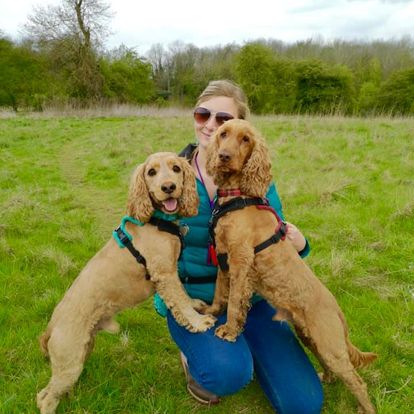
So again, that's where the membership and the spaniel inner circle came from. And the idea with that is it's very much tailored to dog owners, but it was effectively it's a spaniel database. So everything they need help is on that site.
So every month, I do a Zoom call on a specific topic. I've done things like recall and connection so far, lead walking in terms of what they need to do before they leave the house. I'll get guests, other professionals in, because I also love working with other people and I want people to get the right positive advice for the breed. You still will get a lot of people saying to use really harsh methods to stop some of the problems. But for me, it's all about working together as an industry.
So I get people to do talks for me. And then I do a Q and A with them. And then I'll upload different resources in. So I put a whistle training guide. I've done a puppy biting guide recently.
Dom: People also get access to you, don't they, as well in the Q and As and stuff that you do. And you shine a light on different aspects of spaniel ownership, which is brilliant. We're tweaking a few things as well at the moment, which is only natural when we're starting something new. But anyway, tell us some numbers, tell us about numbers, people who've joined from the off.
So what we did, again, with working with you, is we kind of did a bit of pre kind of warmup on socials and various things where I basically just said something really exciting was coming, but I didn't really tell them what it was, just that it was specific to spaniels.
I built up a database of emails and of people that were interested. So straight away when I was going to sell, I had a really nice sort of warm, interested audience to sell to.
And then every day, I did a various topic on spaniels that I would email out and follow up again on socials. Again, they would sort of be given the signup. We did an early bird price initially, which again was your idea, have a limited time period. And again, I just followed up with daily emails. On the last day, I sent three emails out. So a count down, which again was completely out of my comfort zone.
Before I worked with you, a lot of my stuff on social has been very successful for me, but again, it's put in everything in one basket as such, whereas now I think my email list is probably at around 1400 names.
So, in the first week of opening the membership, I think we got about 102 people, which was amazing! It's only been really a few months, I haven't necessarily pushed it that hard, but we're at around 150, and they're from across the world as well.
So I did another recent offer for it because it was the fourth year since I've been in business. And that got another load of people as well. I'm just about to send them out a survey to find out what they're enjoying, what needs improving on...
Dom: And we're going to sell them more stuff?
Hannah: Yeah, it's made a huge difference. Again, it's a reliable source of income. So again, I can put stuff back into the membership. I can make sure I can bring in those great resources to give them more value as well. It gives me more security. So yes, it's been a huge difference and I think it was definitely the right time to do it.
Dom: Yeah. I think just to give us sort of a wider point to people, dog trainers watching this really, Hannah was at a point where she was too busy. Her diary was full. The waiting list was too long, and there was no way of scaling up that side, of the business in this state that it was.

And you're right, the membership and the niching and stuff, you took a little bit arm twisting, but not really a lot. I think that was the big thing, was me helping you see, "Look, we do it this way, if we have a lower price thing and then we do higher price programmes, we're actually able to help a lot more people than you are now, and you can still do your one to ones and stuff, you know?"
So dog trainers have got to find a way to go from selling one to one or one to few, to one to many. And we do that through having low-priced options, like a membership, higher price programmes done with you, then one to one stuff, and potentially done for you services, if you wanted to do something like that, or events and stuff. Right at the bottom, we'll have a book hopefully next year as well that we'll get cracking with. That's my next little thing for you.
I know one of the differences with you having a business coach and the way that we work here is, I know because you've told me, I know what you want. I know what you want in your life to look like. I know with you and your partner and your dogs and having your holidays.
So, if we want to do all that, we really need to fix the business to match what you want for your life. And you've took a massive step with that this year. So really well done.
Hannah: Yeah, definitely. And I think, as I said at the beginning, you can then use that income to do the various CPD, and what you want and also just have a nice life with... I think sometimes there's sort of this thing with the industry, obviously, we all want to help people, but it costs a fortune to deal with these courses and it costs a fortune to invest. So I think it's fine to want to have nice things and nice achievements with running the business.
Dom: Definitely. So final question then. What difference has the coaching programme made? And would you recommend it to other dog trainers?
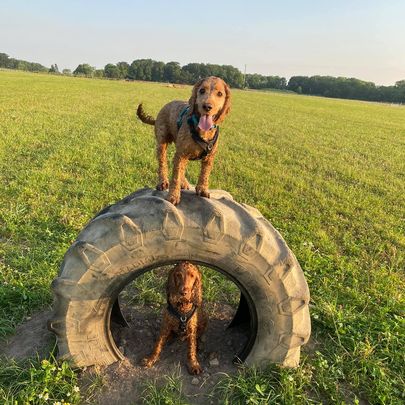
Hannah: Yeah, I would. It's made a big difference. I think for me the biggest things, I think I said this to you when I first signed up, was the accountability. And sometimes, I don't necessarily like bad feedback, and stuff's lovely when it's going right. But I also want people to say where it's wrong, to tell me what I need to change. Like you said, I can be slow to implement things, to keep track, to look at the bigger picture. Because I think when you work in the business and stuff, it's so hard to look at the outside and we spend so much time like working in it . We forget sometimes to work on it.
And for me, it was learning to put these other systems in place. Constantly, there's marketing going on, without me necessarily having to sit down and market every day with having the systems and things in place. So for example, when people enquire, there's a whole process. They automatically receive a testimonial booklet.
I think people have got to be prepared to be pushed out their comfort zone because you're not always in your comfort zone, by any means. It's not always comfortable. And they've got to be prepared to, again, put the work in because it does take work and it takes commitment and time.
But if they're willing to do that then yeah, definitely would recommend your coaching programme.
I started off with the PBIC gold membership and then I progressed all the way up to the Platinum as the business has grown. So that kind of speaks for itself, to be honest.
The membership fee of whatever is Platinum, I mean that is paid for by the business fairly easily and things. And that definitely wouldn't be the case when I sort of started.
Dom:Hey, Hannah, thanks so much for coming on and sharing your story. I super appreciate it. Where can people go to find out more about you and the website and the membership and stuff? Give it a plug.
Hannah: So my page is Pawsitively Pawsome Pups Training and Behaviour. So it's a bit of a tongue twister! If anyone's watching and they've got a spaniel or anything, if they've got clients they'd like to join, then just pop me a message, and I can give them like a 50% first month discount code to try it out. If people have got any questions or anything, they're always welcome to message me. I don't know all the answers, but I'll try and help point people in the right direction.
Dom: You know enough answers. And great plug. Great offer at the end there as well. Love it. She's learning, this girl. I like it. Hannah. Honestly, I'm super proud you... I always tell you this... of what you've done this year. You pushed yourself out your comfort zone. We transformed the business. It's just the first step, in many ways. We've got so much more that we're going to do. Yeah, we've been confident going into next year. You're going to have all these little income streams coming from different things and we're creating assets and we're building your profile as a spaniel expert. It's absolutely wonderful. Really well done.
Hannah:Thank you very much.
Dom: Guys, if you're watching this, if you are interested in joining the Diamond or the Platinum coaching programme, then just click on one of the links below and Hannah and I will see you in one of my coaching sessions. Thanks again, Hannah.
Check out Hannah's website here
If you would like to join Hannah in the Diamond Coaching Program then check out the links below.
Dom Hodgson is Europes leading pet business coach and he can help you get the confidence and clarity so you know exactly what you need to do right now to radically increase your pet business income.
Inside the Exclusive Diamond Coaching Program Dom will help you maximize your results. The Diamond Pet Business Development Program includes:
- Daily access to the worlds No #1 pet business coach, who has helped hundreds of pet business owners to transform their business fortunes, and build an amazing impactful business around the kind of life they want to have.
- Dom's proven step-by-step formula to systemise, staff and successfully scale your business (without any fluffy-bunny, waste of time, silly social media nonsense...)
- Access to the most amazing kick-ass, heart-centred community of pet professionals on the planet – Diamond members get more done than anyone else.
- Clarity, confidence and a personalized clear plan of action to get you moving forward, FAST!